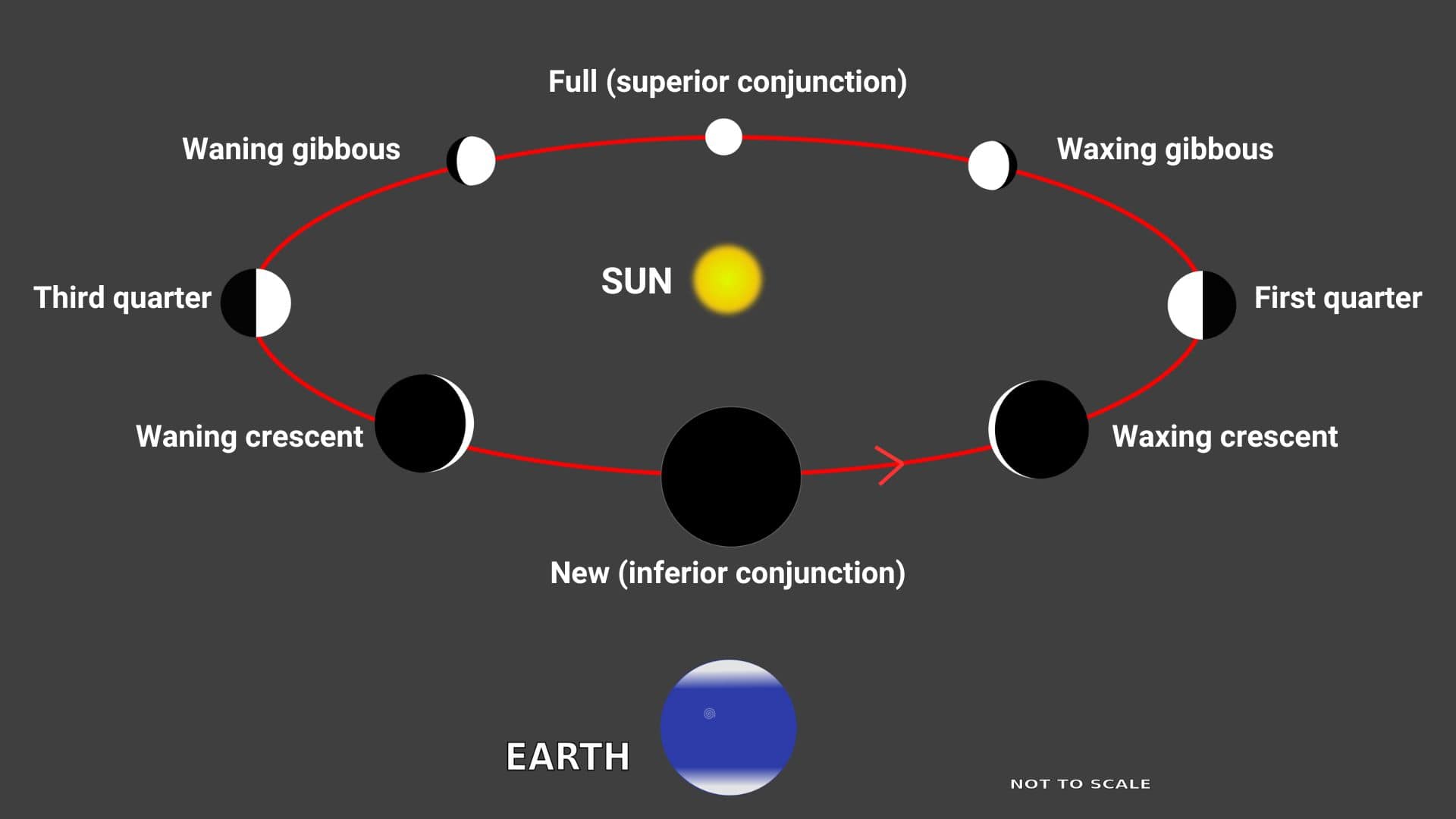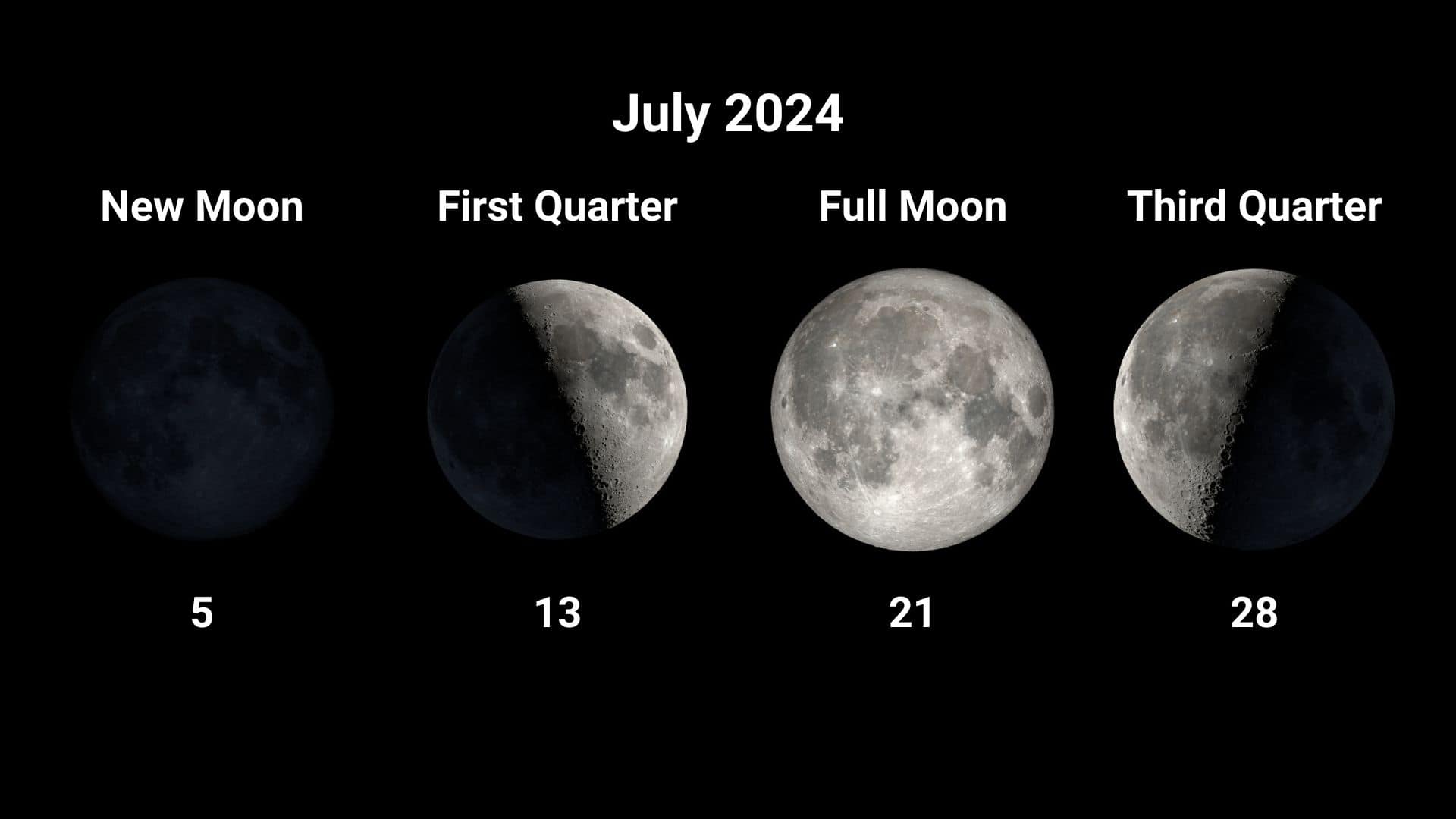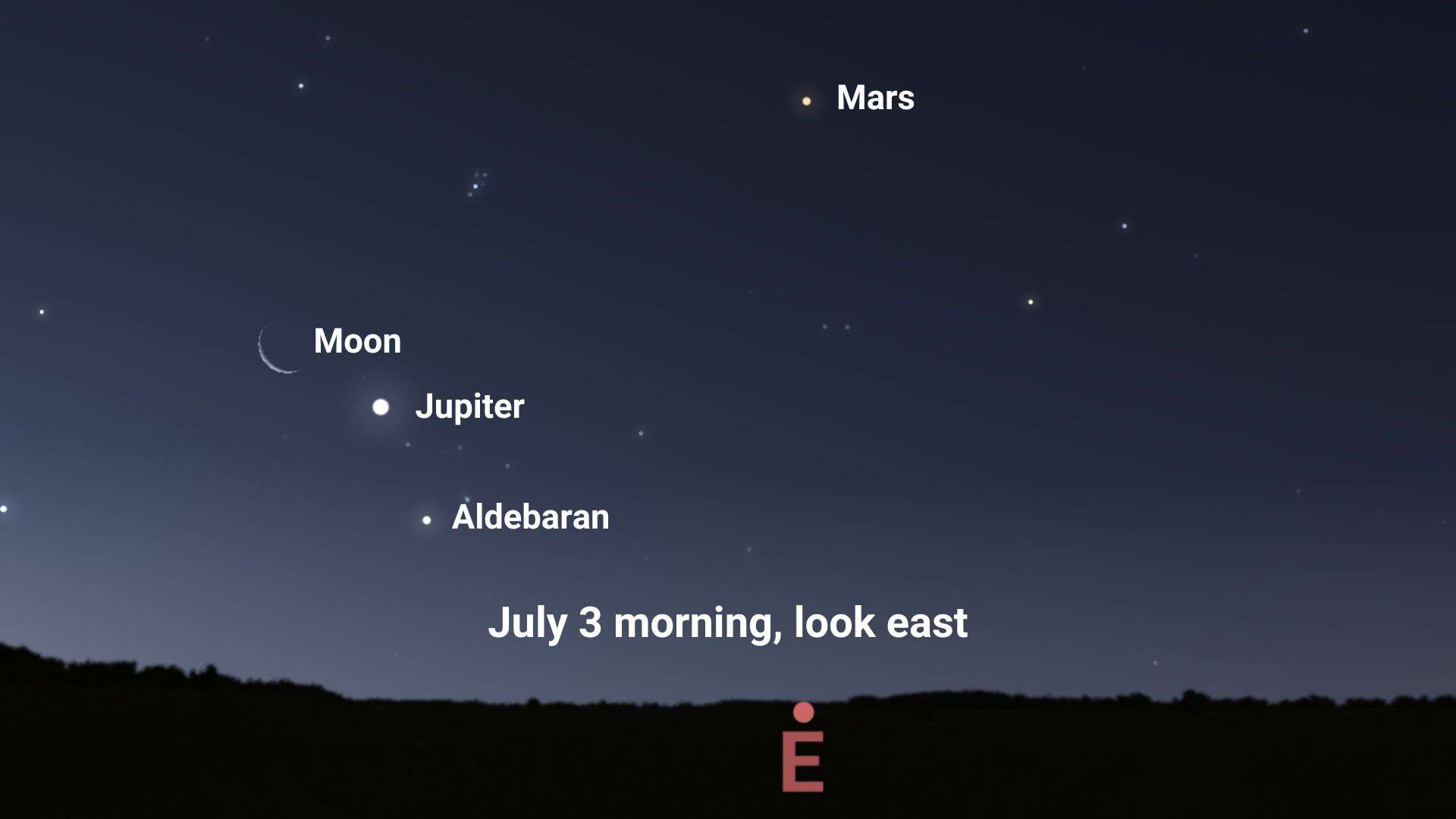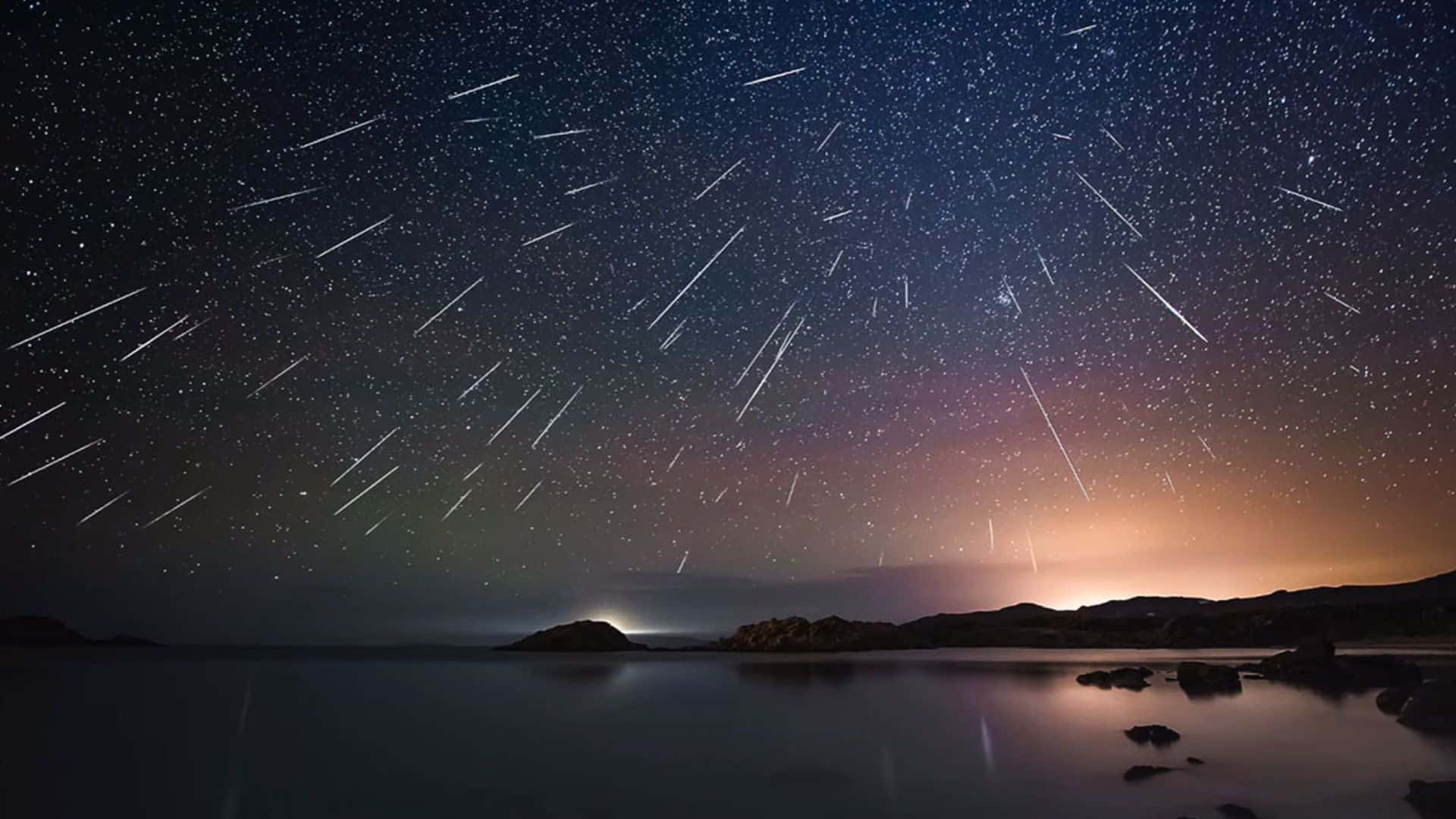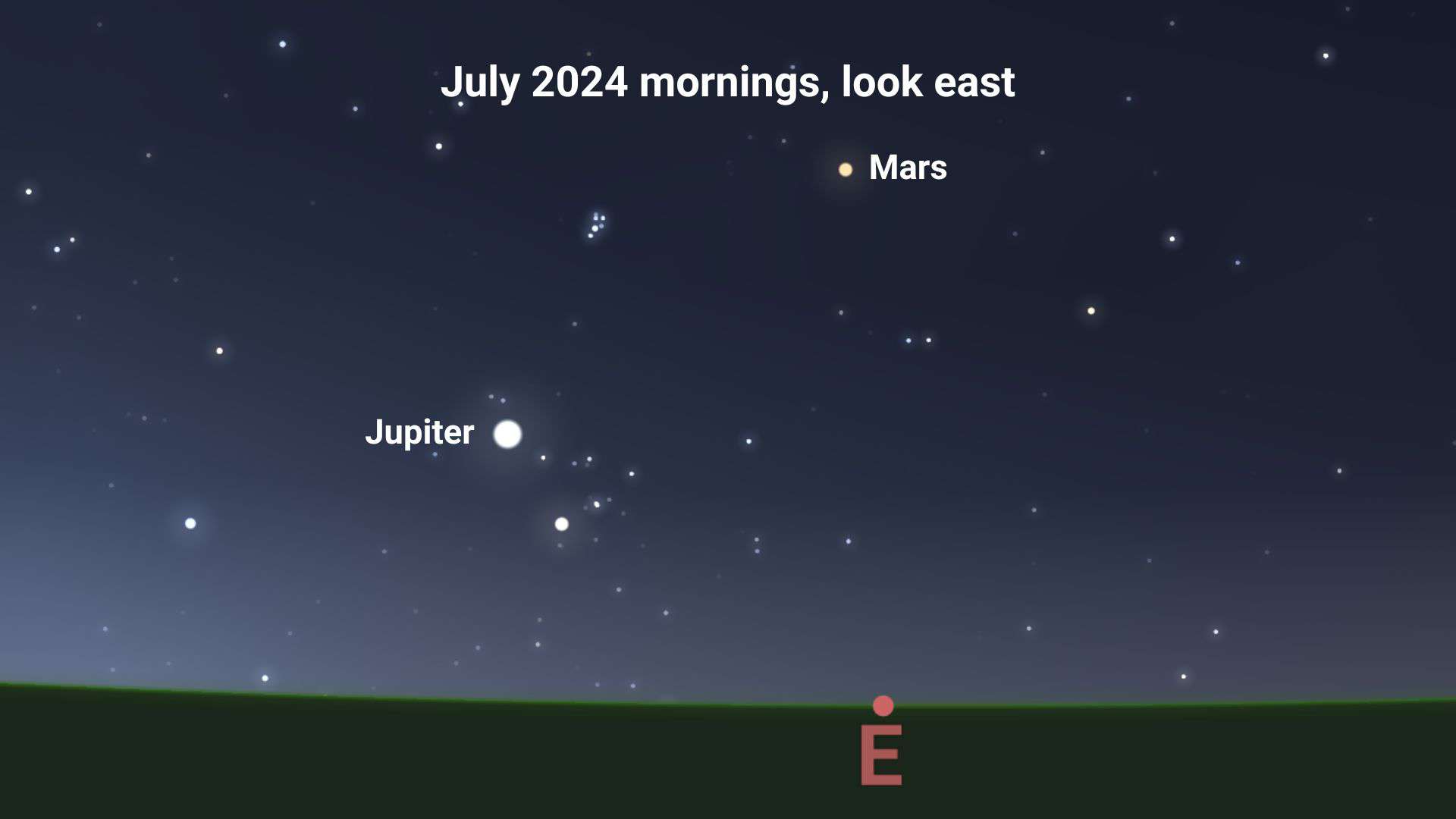
What planets are visible tonight?
Saturn is visible in the southern sky preceding sunrise on July 3, 2024. It rises around midnight. It looks golden in the sky.
On this day, Saturn shines with a magnitude of +1.0 and is located in the zodiac constellation Aquarius, the Water Bearer.
Mars is visible low in the eastern sky preceding sunrise on July 3, 2024. It rises around 3 hours before sunrise. It looks reddish in the sky.
On this day, Mars shines with a magnitude of +1.0 and is located in the zodiac constellation Aries, the Ram.
Jupiter is visible low in the eastern sky preceding sunrise on July 3, 2024. It is visible to the lower left of Mars. It rises around 2 hours before sunrise. It is the brightest object in the morning sky (except for the moon).
On this day, Jupiter shines with a magnitude of -1.9 and is located in the zodiac constellation Taurus, the Bull.
Mercury is visible near the western horizon following sunset on July 3, 2024. It rises around an hour before sunrise. You need a clear view of the horizon to catch a glimpse of Mercury. It is easier to spot Mercury in the southern hemisphere than in the northern hemisphere. Mercury is visible a bit higher in the sky from the southern hemisphere due to the higher slope of the ecliptic.
On this day, Mercury shines with a magnitude of -0.3 and is located in the zodiac constellation Cancer, the Crab.
Mercury in July 2024
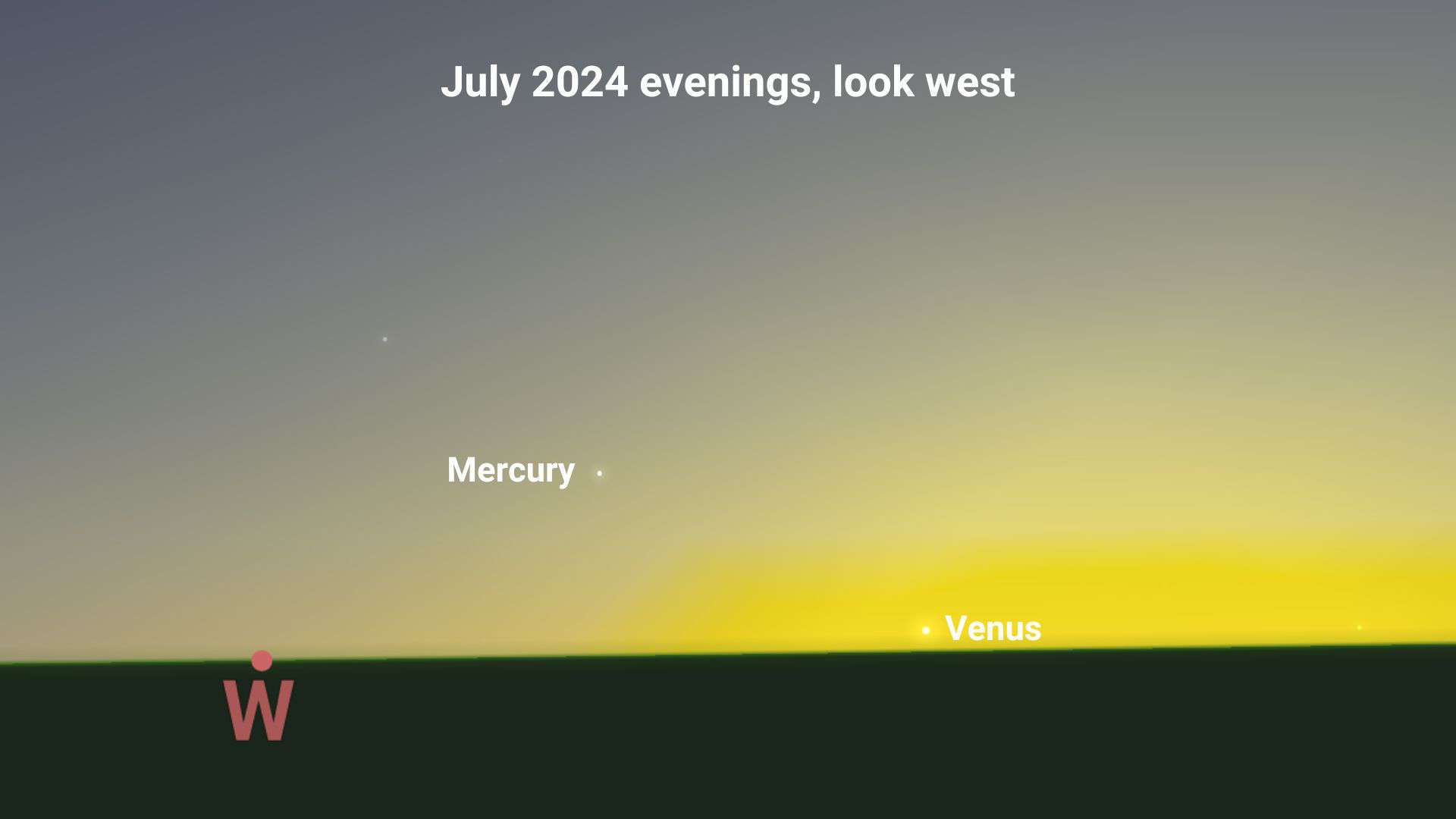
Currently, Mercury is rapidly emerging from the sun’s glare, making it gradually easier to observe in the evening twilight.
Mercury will be visible very close to the waxing crescent moon on the evening of July 7, 2024.
Mercury will reach furthest from the sun on our sky’s dome on July 22, 2024 – called the greatest eastern elongation of Mercury. At that time, Mercury will be 26.9°E from the sun. It will be the best time to observe Mercury in the evening twilight in July.
After the greatest eastern elongation on July 22, Mercury will rapidly approach to the sun’s glare, making it gradually harder to observe in the evening twilight.
Mercury will reach its inferior solar conjunction on August 19, 2024. At that time, Mercury will completely disappear in the sun’s glare as it will rise and set with the sun. It will be impossible to observe Mercury around that time.
Mercury will cross the sun on our sky’s dome during its inferior solar conjunction on August 19, and as a result, it will shift from the evening sky to the morning sky.
Venus in July 2024
Currently, Venus is slowly emerging from the sun’s glare. However, it is too close to the sun to be visible in July.
Venus will reach a decent height above the horizon from the beginning of August 2024 and will be visible in the evening twilight.
Venus will reach furthest from the sun on our sky’s dome on January 10, 2025 – called the greatest eastern elongation of Venus. At that time, Venus will be 47.2°E from the sun in our sky. It will be the best time to observe Venus in the evening sky.
Mars in July 2024
Mars will be visible in the early morning hours in July. Each day, it will gain altitude in the morning sky.
At the beginning of July, Mars will rise about 3 hours before sunrise, and by the end of July, it will rise about 4 hours before sunrise.
Mars will be visible very close to the 26% illuminated waning crescent moon on the morning of July 30, 2024.
Mars will be brightest and visible almost all night in our sky in January 2025 as it will reach its opposition on January 15, 2025. At that time, Mars will be located on the opposite side of the sun on our sky’s dome. It will be the best time of the year to observe Mars.
Jupiter in July 2024
Jupiter will be visible in the early morning hours in July. Each day, it will gain altitude in the morning sky, like Mars.
Jupiter will be visible very close to the waning crescent moon on the morning of July 3, 2024.
Jupiter will be visible to the lower left of Mars in July, and as the day progresses, the separation between them will gradually decrease. They will meet on our sky’s dome on August 14, 2024.
Jupiter rises about four minutes earlier each day. At the beginning of July, it will rise about 2 hours before sunrise, and by the end of July, it will rise about 4 hours before sunrise.
Jupiter will be brightest and visible almost all night in our sky in December 2024 as it will reach its opposition on December 7, 2024. At that time, Jupiter will be located on the opposite side of the sun on our sky’s dome. It will be the best time of the year to observe Jupiter.
Saturn in July 2024
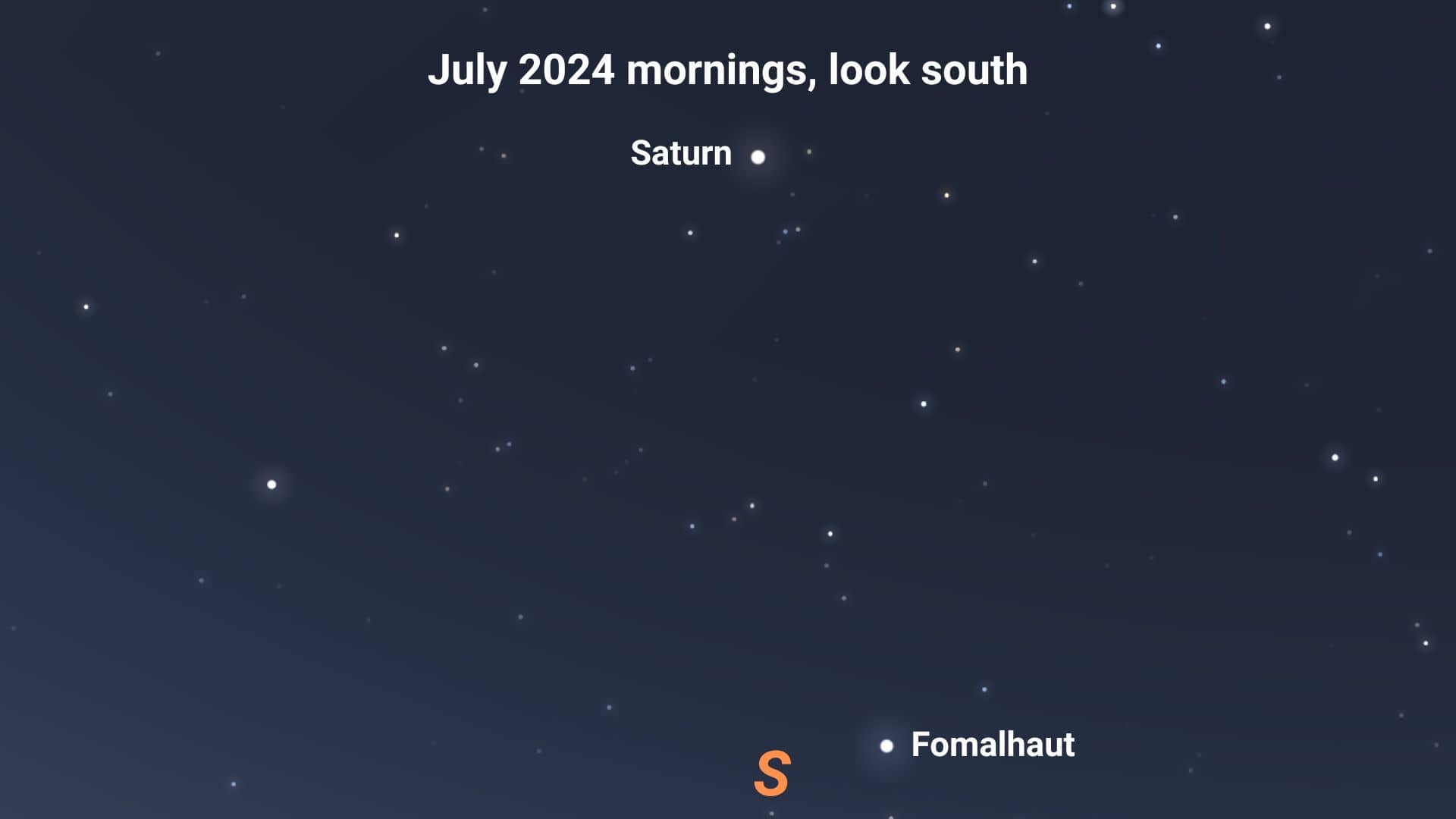
Saturn will be visible in the early morning hours in July. It will remain at about the same altitude in the morning sky.
Saturn rises about four minutes earlier each day. At the beginning of July, it will rise around midnight, and by the end of July, it will rise a couple of hours before midnight.
Saturn will be visible very close to the 89% illuminated waning gibbous moon on the morning of July 24, 2024.
Saturn will be brightest and visible almost all night in our sky in September 2024 as it will reach its opposition on September 8, 2024. At that time, Saturn will be located on the opposite side of the sun on our sky’s dome. It will be the best time of the year to observe Saturn.
Resources
Visit the Stellarium Online for precise positions of planets from your location.
Moon phases July 2024: What is the moon phase today?
Mercury phases 2024: What is the phase of Mercury today?
Happy skywatching!
Please bookmark Spaceandtelescope.com or follow us on Facebook and Twitter to get latest space news, upcoming skywatching events and astronomy-related content.
